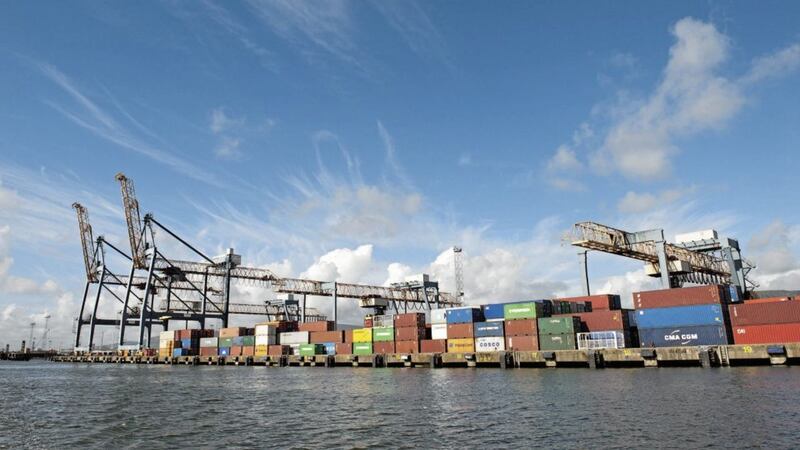IF you’re a director in Northern Ireland, chances are you’re already better prepared for Brexit than many counterparts in Great Britain, even if you haven’t taken any steps to do so yet.
Awareness here about the implications of the Withdrawal Agreement brought back by the Prime Minister last year, in particular the new Protocol that replaced the backstop, remains much higher for obvious reasons.
Ensuring all those involved in the supply chain of goods moving between GB and NI similarly understand change is coming, not only for UK-EU trade but also intra-UK movements, is imperative to minimising the potential for disruption on numerous fronts come the end of the year.
Barring any last minute UK-EU decision to postpone its implementation, the protocol will come into effect from January 1. The government is staggering some of the immediate impact of changes for imports (unless you’re dealing with controlled goods), such as extending duty deferment for any tariffs and allowing traders to gradually move from more simplified declarations to full customs formalities between January and July. This option is not available in respect of the protocol, where reciprocity is the name of the game given the Irish Sea has effectively become the EU’s new external frontier.
The good news is both sides remain committed to “de-dramatising” the impact of any new checks, controls and paperwork associated with the protocol and moving goods between GB and NI, although the approaches clearly differ in some respects.
Unsurprisingly, it is the government which is most keen to seize on as many flexibilities as possible in implementation, particularly but not only in delivering on the pledge to protect “unfettered access” for products going the other direction from NI to GB. Presumably, it is aware traders’ instincts to often follow the path of least resistance means too much added complexity and paperwork from the protocol puts at risk some of the UK’s own internal trade.
Mindful of the fact that negotiations on finalising the protocol’s implementation still continue even as the January deadline looms large, the government has moved to set up the new Trader Support Service to directly relieve some of the preparation and adjustment burden. While the service itself is not yet live, businesses affected by the protocol can register their interest to ensure they are first eligible. The TSS will effectively take on the responsibility of new declarations paperwork for internal movements after Brexit.
But it is imperative that any business affected by these changes know that responsibility for understanding the new information they will need to provide for the TSS lies with them. Fuller guidance on the protocol’s implementation is due later this month, as the UK and EU continue to work through a number of provisions to nail down the detail.
Some of this relates to VAT arrangements and in particular, determining which goods going from GB to NI are considered “at risk” of going on into Ireland and the EU. Those which are will, under the protocol, require EU tariffs to be applied (even if coming from GB), which can then be rebated against UK tariffs if there is a difference and the goods are proved to be staying in Northern Ireland.
If it sounds fiendishly complicated, spare a thought for the negotiators who are doing their utmost to minimise the complexity.
Speculating as to the details of the outcome can send one down a rabbit hole of scenarios and what-ifs, so business leaders struggling just to take Covid one day at a time will understandably want to wait for the full picture first.
However, checking out whether the TSS can help lighten the load is an essential first step to simplification.
Finally, it’s worth remembering that the protocol is silent on services trade. There, we await the impending final picture from wider UK negotiations with the EU.
:: Kirsty McManus (kirsty.mcmanus@iod.com) is director of the Institute of Directors Northern Ireland (www.iod.com/ni)








